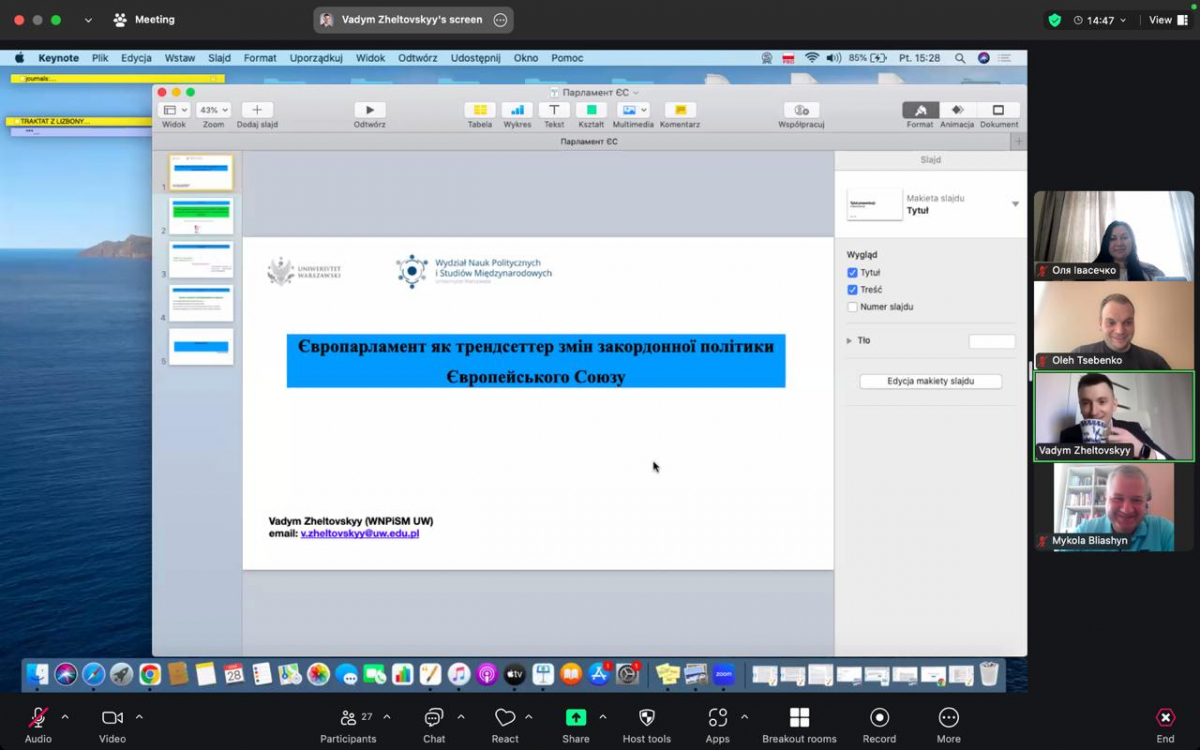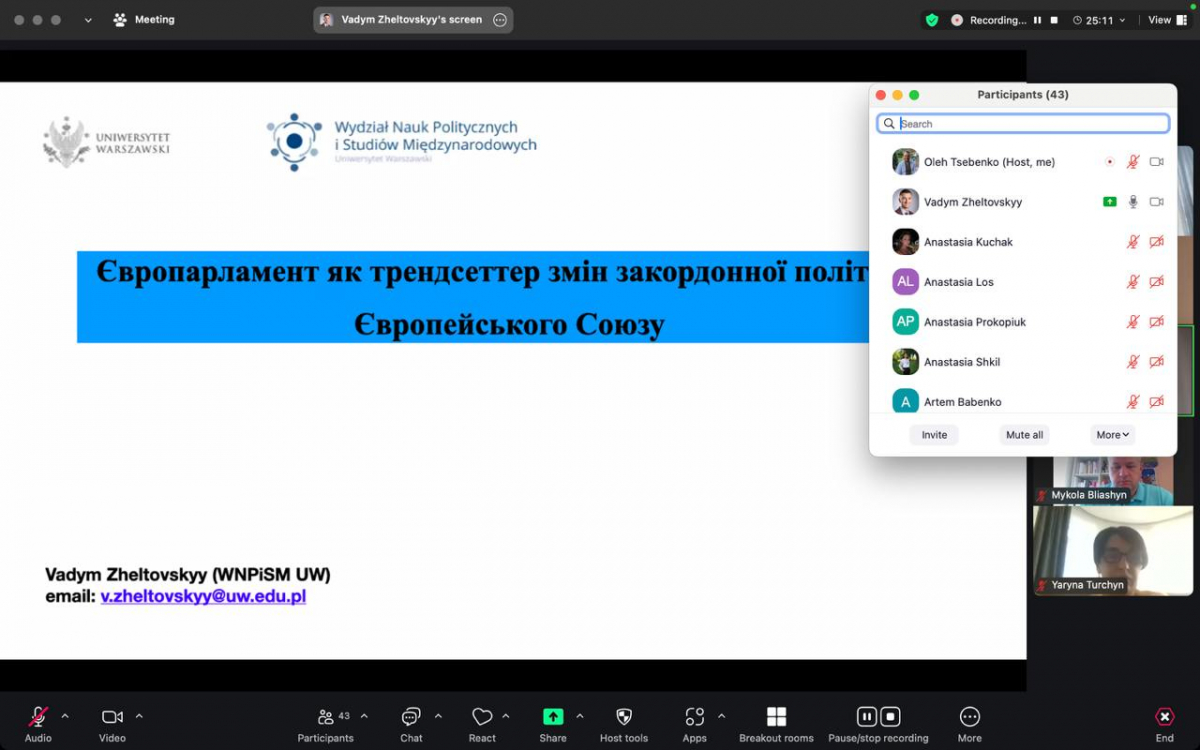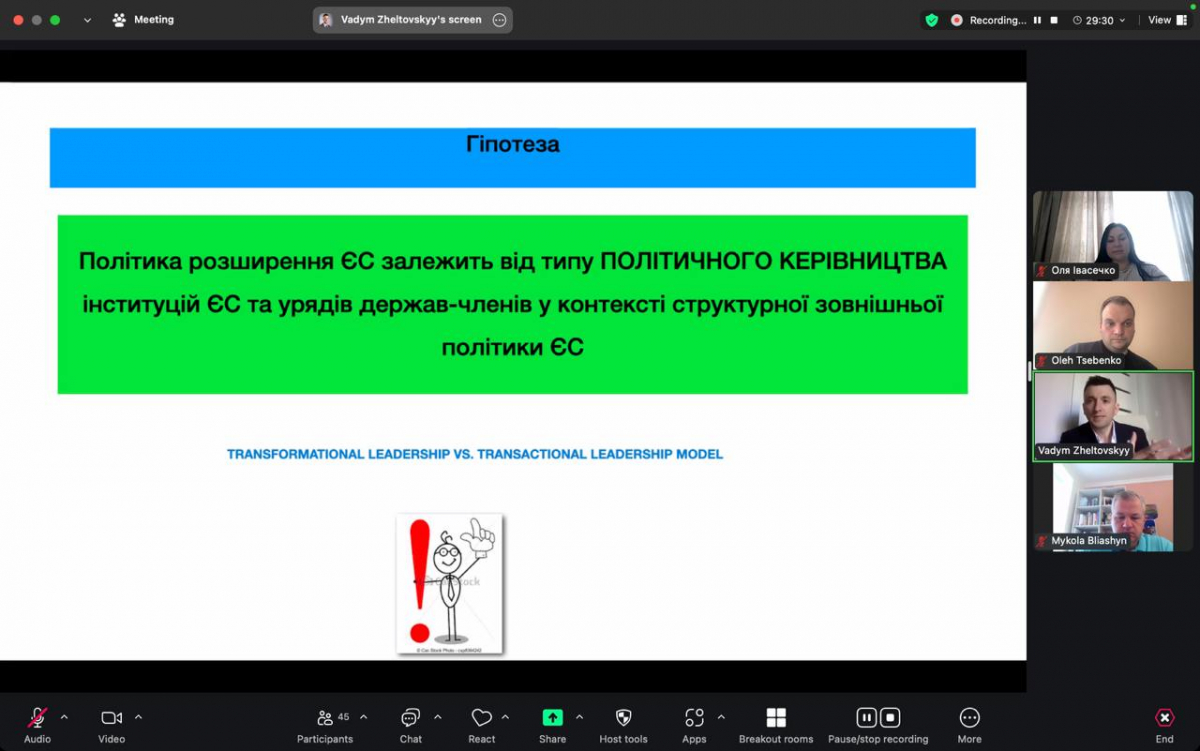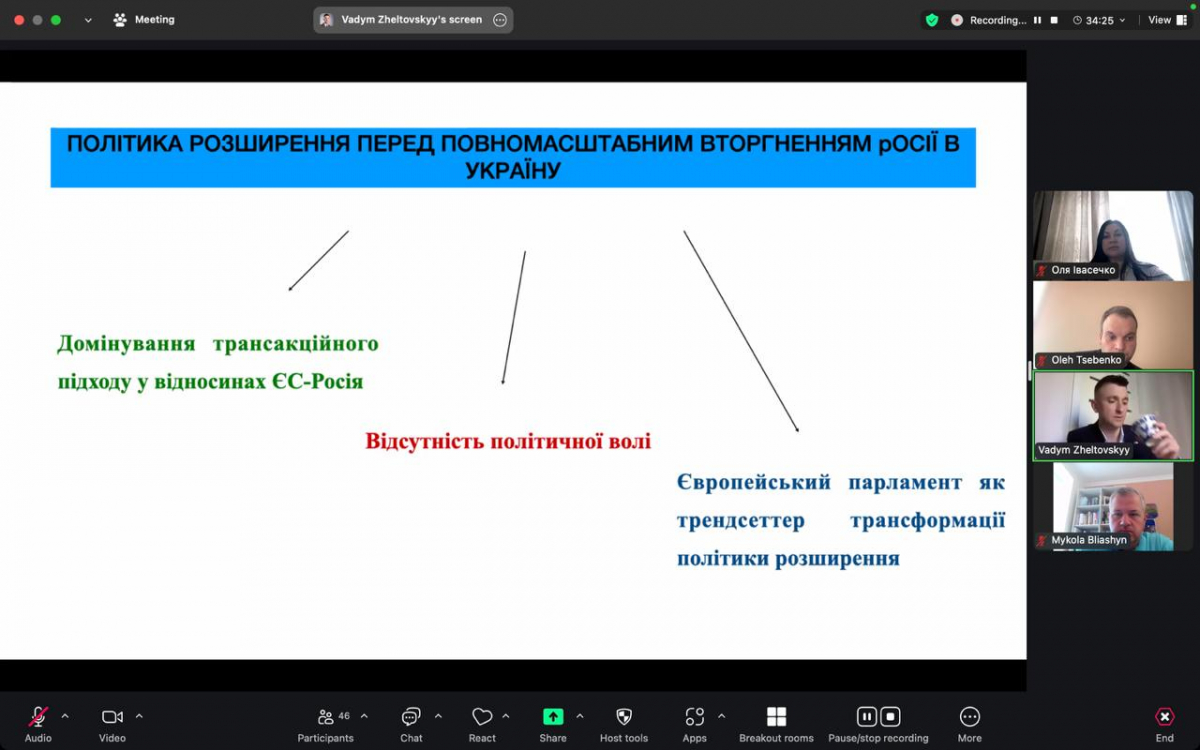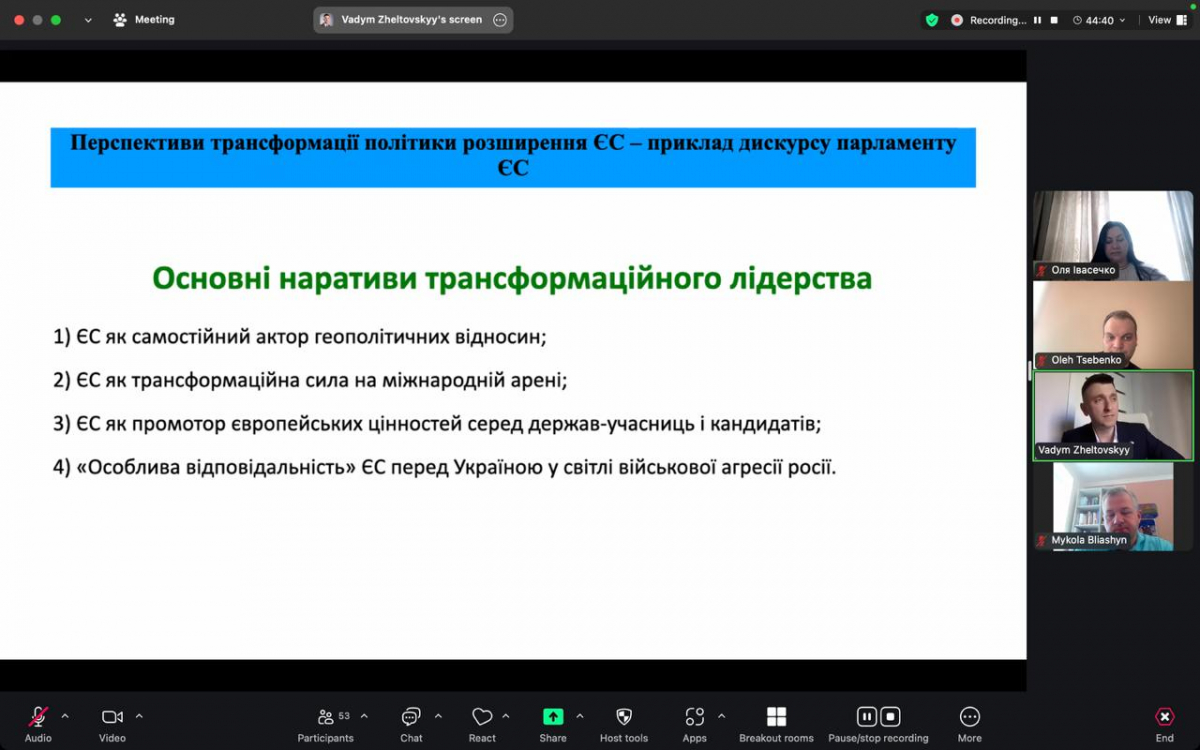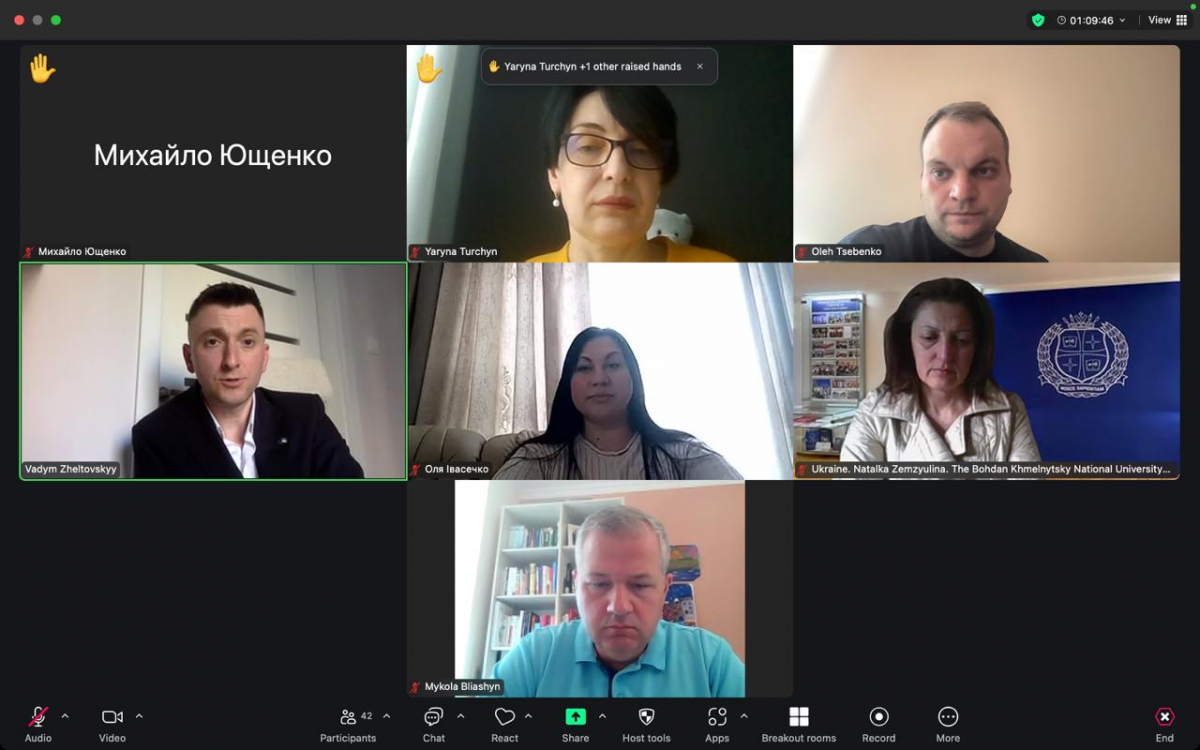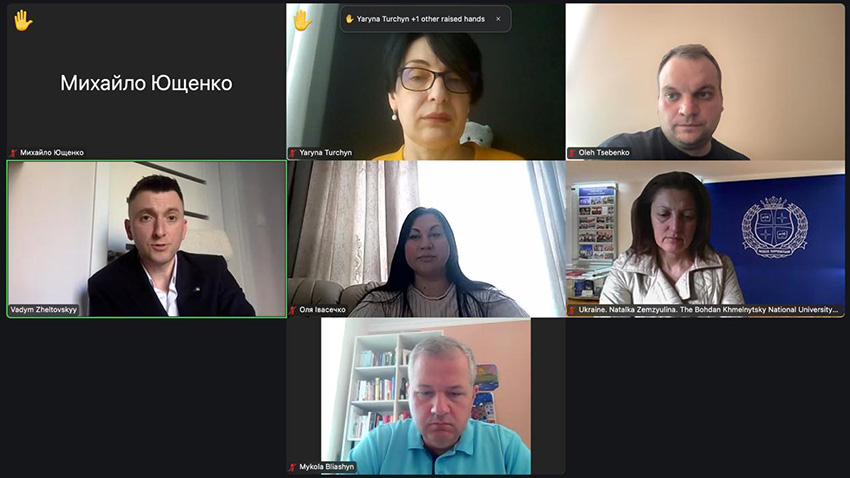On March 28, 2025, within the framework of the project "EU Global Responsible Leadership: Climate Change, Environmental Protection and Humanitarian Aid" (EU_LEAD) with the support of the Erasmus+ Jean Monnet program, a public online lecture was held by VADYM Zheltovsky – Doctor of Political Science at the University of Warsaw, Head of the Warsaw Branch of the Polish Society for European Studies, Expert of the Group of Advisors to the Chairman of the European Union Committee of the Sejm of the Republic of Poland on the topic: "The European Parliament as a Trendsetter for Changes in the Foreign Policy of the European Union".
It is worth noting that the topic raised by Vadym Zheltovsky aroused considerable interest not only among students, but also among representatives of the authorities (Rivne City Council), as well as colleagues from the Bohdan Khmelnytskyi National University of Cherkasy. In total, 55 participants joined the event.
During the lecture, the speaker focused on the role of the European Parliament (EP) in reviewing the EU's Eastern policy in light of full-scale Russian aggression against Ukraine. Vadym Zheltovsky also paid special attention to the transformation of the EP's approach to the issue of forming an Eastern policy after the 2019 elections and after the Russian invasion of Ukraine on February 24, 2022. In order to determine the transformative potential of the EP in the institutional system of the European Union (EU) regarding the Eastern dimension of its neighborhood policy, the speaker analyzed individual resolutions and recommendations, as well as key political addresses of the leaders of the EU member states. In addition, Vadym Zheltovsky focused on the main political addresses of the leaders of the EP, the European Council, and the European Commission. As a separate case, the Polish presidency of the Council of the EU (from January 1, 2025), Warsaw's priorities (defense and security, protection of people and borders, countering foreign interference and disinformation, ensuring security and freedom of business, energy transition, competitive and sustainable agriculture, health security) and their significance for Ukraine's European integration track were taken into account. The speaker emphasized the context of foreign policy structural competition between the EU and Russia, with a special emphasis on the role of the above-mentioned institutions in the process of foreign policy development, as well as on the nature of the EU's support for democratization processes in the Eastern Partnership (EaP) region until February 24, 2022. The lecturer presented the hypothesis that the EU's enlargement policy depends on the type of political leadership of the EU institutions and the governments of the member states in the context of the EU's structural foreign policy. It is stated that the EU enlargement policy before the full-scale Russian invasion of Ukraine was characterized by the dominance of a transactional approach in EU-Russia relations and the lack of political will.
At the end of the lecture, Vadym Zheltovsky made an attempt to assess the steps taken by the European Parliament to reform the EU's Eastern policy and strengthen support for Europeanization processes in partner states aimed at the democratic transformation of the region. Vadym Zheltovsky presented the prospects for the transformation of the EU enlargement policy using the example of the discourse of the EU Parliament. And, therefore, he outlined the following main narratives of the EU's transformational leadership, such as: 1) the EU as an independent actor in geopolitical relations; 2) the EU as a transformational force in the international arena; 3) the EU as a promoter of European values among member states and candidates; 4) the EU's "special responsibility" towards Ukraine in the light of Russia's military aggression.
During the lecture, the speaker often gave various examples from his internship in the European Parliament.
The student youth and all those present had the opportunity to ask questions to the foreign lecturer, including, of course, the position of Hungarian MEPs on Ukraine's accession to the EU, financial support for our state, the future of the EU Eastern Partnership initiative and possible trajectories for the development of the Brussels initiative, etc.
The EU_LEAD project team is sincerely grateful to Vadym Zheltovsky for his excellent speech and the time allocated, as well as to all the participants of the lecture and continues to work on preparing other, no less interesting events on the topical topics of Ukraine's European integration and cooperation with the European Union.
